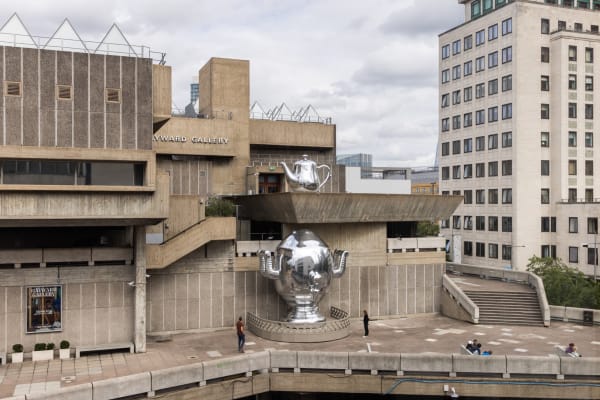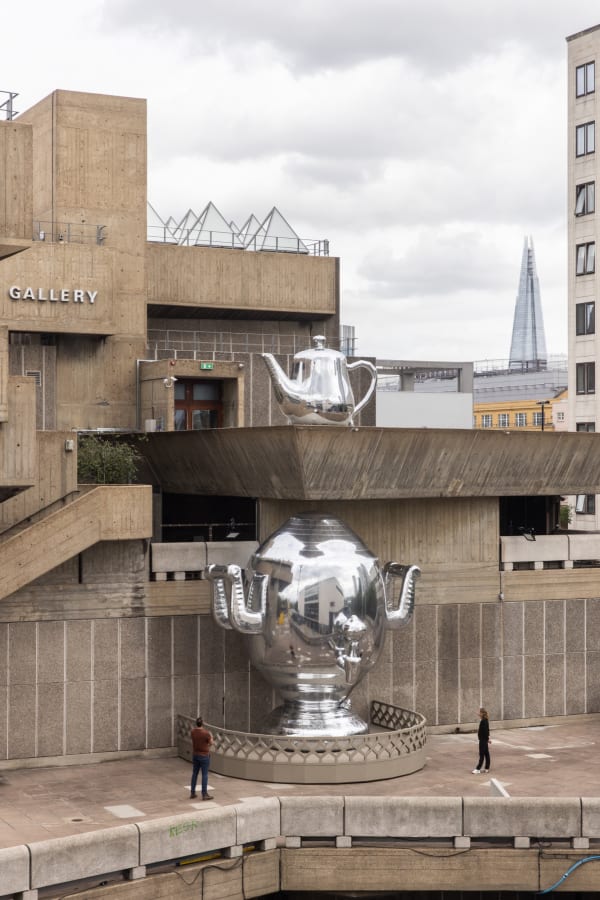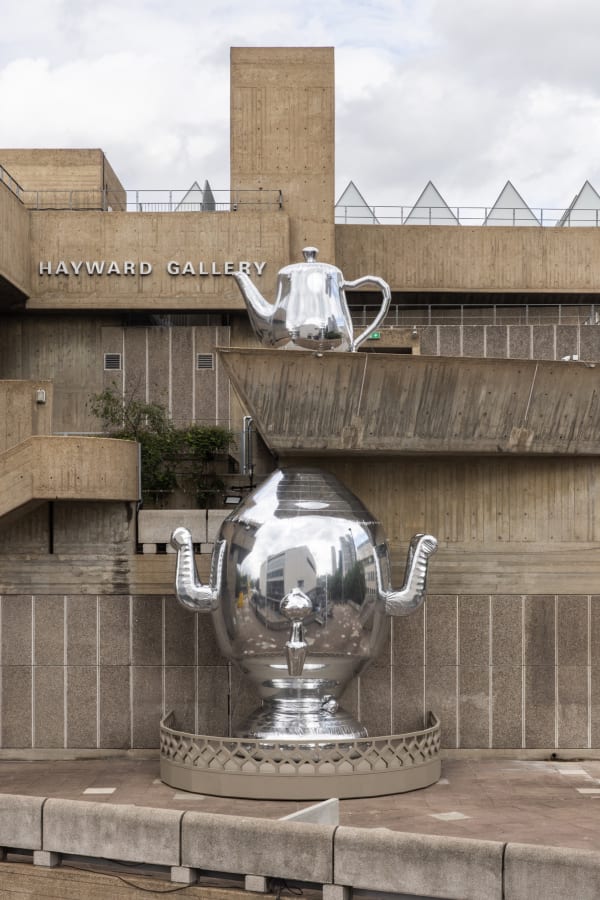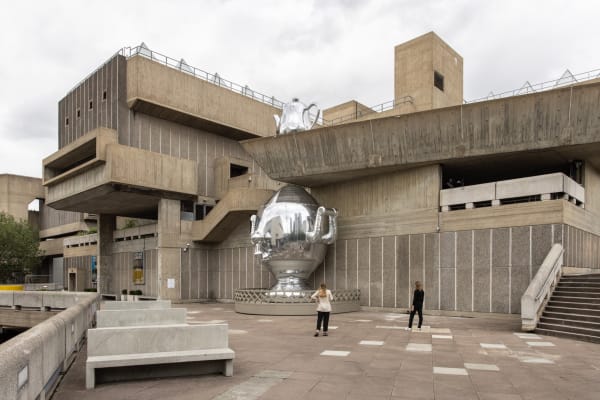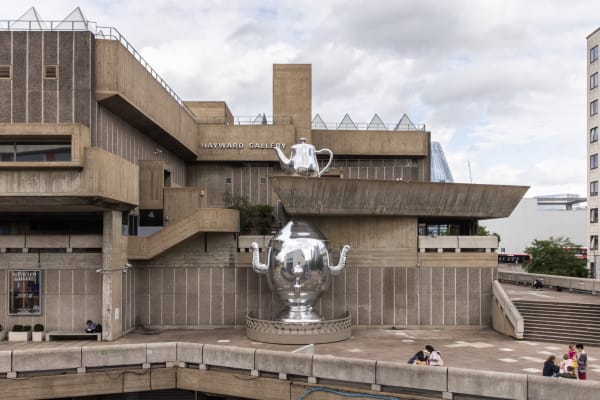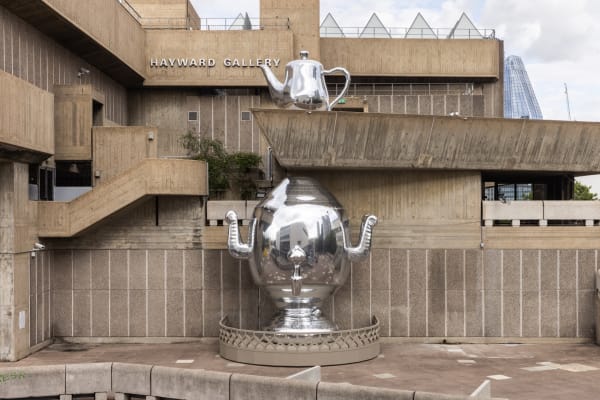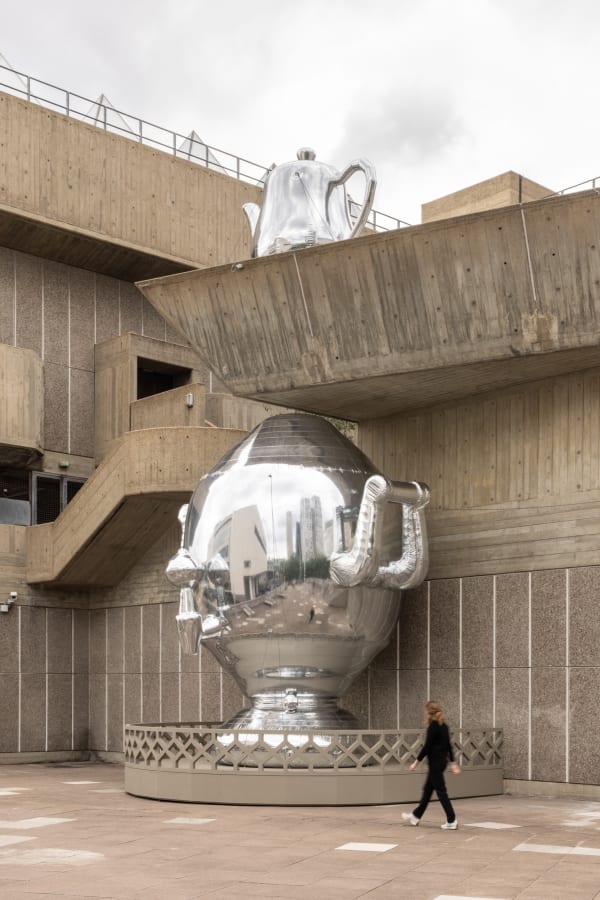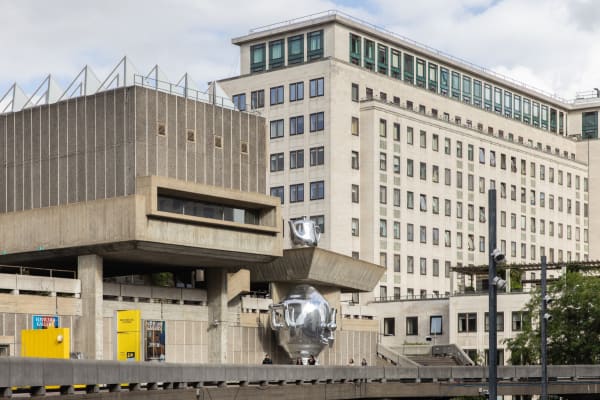Slavs and Tatars: Samovar: Hayward Gallery, London
Art collective Slavs & Tatars presents a large-scale sculpture that reflects on the multicultural and colonial histories of tea. Taking the form of an oversized inflatable water boiler, teapot and serving tray lodged into the side of the Hayward Gallery, Samovar is titled after the eponymous tea brewer commonly found across Central Asia.
A Russian invention of the mid-18th century, samovars are used today across Eastern Europe, the Middle East and some parts of Asia, in both domestic and communal settings. Although humorously enlarged like a mascot or parade float, Slavs & Tatars’ installation uses the samovar as an emblem to recount the ways in which the history of tea is intertwined with cross-cultural exchange and colonialism. By creating a monumental symbol of a celebrated and long-established tea culture, the artwork questions the role of tea in British history, tradition and popular culture.
The Hayward Gallery invited the artists, historians, chefs and poets to respond to this commission and explore the history and meanings of tea culture in Central Asia and the United Kingdom. Scan here to listen to the recordings: [QR code]
Slavs & Tatars is an art collective based in Berlin, Germany. By blending pop aesthetics, esoteric traditions and oral rituals with scholarly analysis, Slavs & Tatars creates artworks that address complex and overlooked cultural histories spanning Europe and Asia. Since 2006, the artists have produced installations, sculptures, lectures and printed matter that question understanding of language, ritual and identity.
